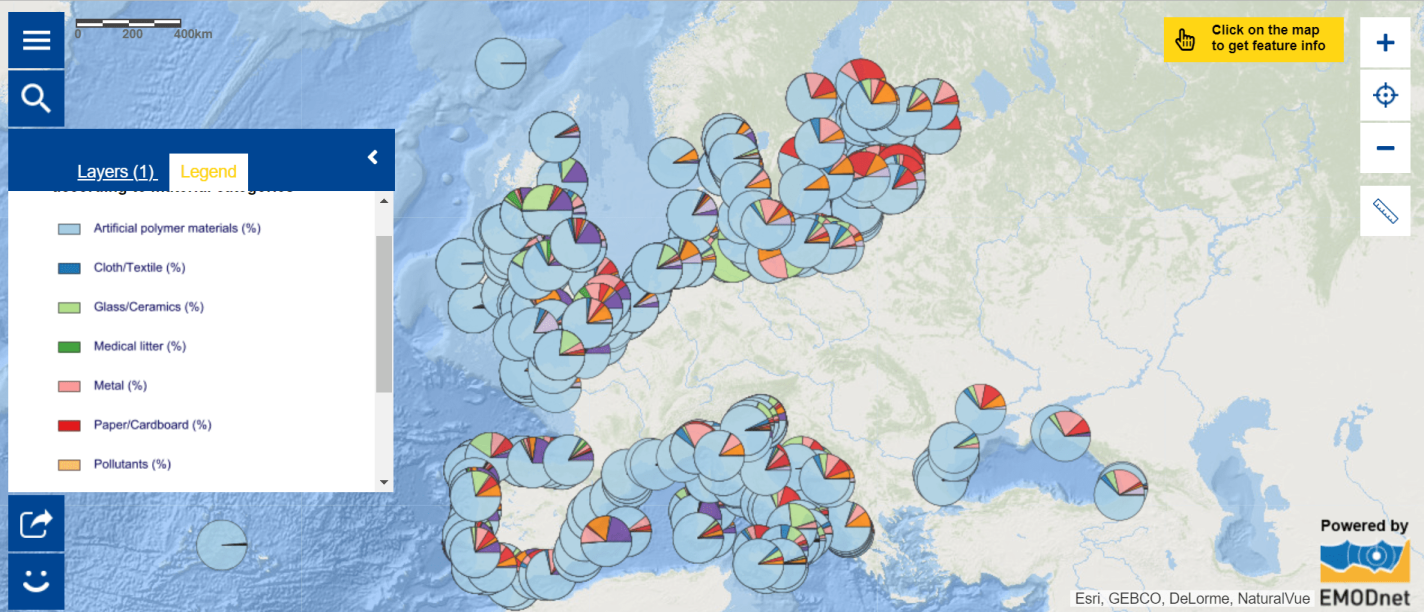Map of the week – Beach litter

Every year, millions of tonnes of litter are generated through a variety of human activities and much of this ends up in our oceans, posing environmental, economic and public health problems. It is not surprising that marine litter is identified as one of the fastest growing threats to the health of the world’s oceans[1], the diverse marine life it supports and, ultimately, humans consuming food from the ocean.
On 24 March 2019, no less than 11.5 tonnes of litter (cigarette butts, plastic bottle lids but also car tyres and even a carpet!) were collected along the Belgian coastline during the nation’s largest annual Beach Clean event[2]. This number gives you an idea of the magnitude of the problem but it also shows the impact that each of us can have to tackle this societal issue.
Three days later, on 27 March 2019, the European Parliament adopted new rules on single-use plastics to reduce marine litter[3]. Europe is therefore leading the way with ambitious measures to ban the use of plastic products that often end up on our beaches.
We thought it was the perfect timing to release a new map which identifies the kind of litter that ends up on European beaches. Divided in eleven categories (glass, textile, metal, polymer, etc.), the map shows the percentage of each that have been monitored on Europe’s coastline between the years 2012 and 2017. Litter may have been directly left on beaches or it may be marine litter that has been washed up on the shore.
By looking at the map, we can clearly see that artificial polymer materials are the most frequently found litter type, representing in most cases more than 50% of the litter found.
Explore the map, compare the presence of beach litter in different areas of Europe and think about the way you consume in order to improve the state of our beaches.
Data displayed in this map were provided by EMODnet Chemistry
[2] https://ec.europa.eu/maritimeaffairs/press/hundreds-eu-staff-kick-beach-clean-season_en
[3] http://europa.eu/rapid/press-release_STATEMENT-19-1873_en.htm
